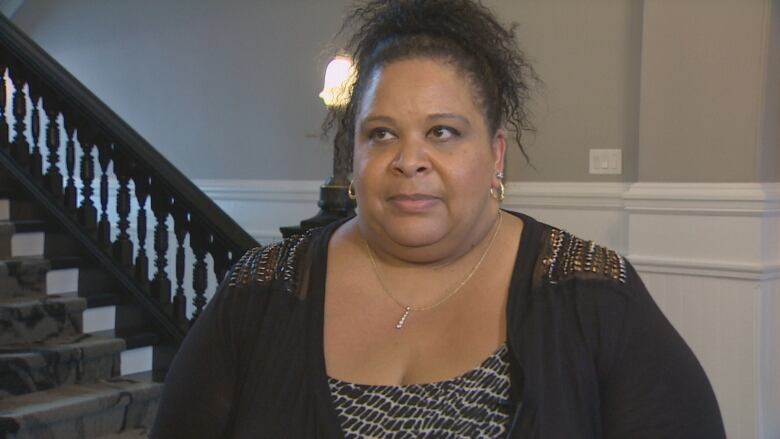Human rights commission wants to hear from more youth on street checks
Human Rights Commission's legal counsel says police have "lost credibility" in black communities

The Nova Scotia Human Rights Commission is seeking to hear from more youth about street checks, its senior counsel said Monday as she described a series of "heated" meetings last month where people detailed being stopped by Halifax police for no reason.
Kymberly Franklin told the city's police board that the commissionis planning more meetings, in the communities of Beechville and Lucasville, and at two high schools and some Halifax universities.
This comes after a series of three meetings in black communities in November. The meetings form part of a report by Scot Wortley, an independent analyst hired by the human rights commissionto examine police street check data.
Street checks involve police documentation of interactions with community members, includingdetails such as age, gender, location, ethnicity and reason for the interaction. A CBC News investigation earlier this year found black people were far more likely to be street checked than white people.

The schools and dates for the upcoming meetings are still being finalized, but Franklin said she expects them to take place early in the new year.
"The number of youth that attended the meetings was very low, but the stories from the ones that were there were very good,"she told CBCNews, after speaking to the boardand Halifax PoliceChief Jean-MichelBlais.
"I think the stories coming from youth are very different than the stories coming from elders in the communities. So it's very important that we have a variety to cover off all the bases."
Franklin told the police board the meetings were "heated," with many people sharing stories of being stopped by police for no reason. Franklin said participants told stories of being stopped, questioned, or handcuffed and then released without being ticketed.
One man told a story of being stopped and questioned about where he was going while he was walking near the Oval, carrying ice skates.
"You've lost credibility in these communities," she told the commission. "There's zero trust."
Concrete recommendations for change
Between 26 and 42 people attended each of the three meetings. Franklin noted many were angry at being "revictimized" by having to tell their stories again after years of inaction. That feeling stretched across the age range.
"The elders bring a historical view. The youth bring a very current and bothered view," Franklin said. "Because they're so young, but they have so much ill contact with the police."
She said the human rights commissionis asking Wortley to make "concrete recommendations" for change. Franklin added she believes there is now the political will to change the policy.
"I think we now have an environment where people are listening," police board chair Steve Craig said.












_(720p).jpg)


 OFFICIAL HD MUSIC VIDEO.jpg)
.jpg)



























































































